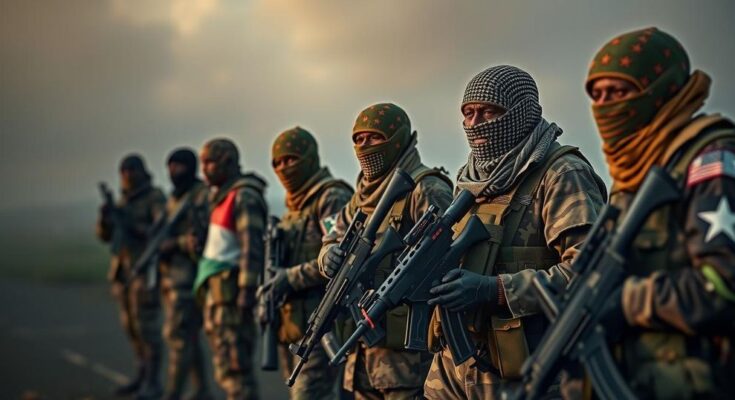Sudan’s ambassador defends the country’s sovereignty amid mercenary influx from Libya, Chad, and Niger, resulting in significant displacement and casualties. He rejects foreign peacekeeping forces, emphasizing that the Sudanese army can maintain order, while urging international condemnation of the Rapid Support Forces’ actions.
During a recent press conference in Tunis, the Sudanese ambassador to Tunisia, Ahmed Abdel Wahid Ahmed, expressed that Sudan’s pressing need is not military support, but rather an urgent cessation of mercenary influx from neighboring countries, particularly Libya, Chad, and Niger. He elaborated that despite efforts to repel these mercenaries, new waves continuously arrive, exacerbating the ongoing conflict between the Sudanese army and the Rapid Support Forces (RSF). The ambassador highlighted the devastating humanitarian consequences of the conflict, stating that approximately 13 million Sudanese have been displaced, with about 10 million internally and 3 million fleeing abroad. He reported a staggering death toll of 5,000 in Khartoum alone and criticized the RSF’s hold over regions, particularly South Darfur, where they have been accused of heinous crimes. Ambassador Ahmed firmly rejected the idea of international peacekeeping forces, asserting that the Sudanese army is sufficiently capable of maintaining security within the country. He condemned RSF’s actions as morally and legally unacceptable and called upon the United Nations to denounce these atrocities. Additionally, Sudan’s representative to the United Nations, Al-Harith Idris, alleged that the forces of Khalifa Haftar, particularly the 106th Brigade, are facilitating the supply of arms to RSF through the border city of Kufra.
The situation in Sudan has escalated into a violent conflict primarily between the Sudanese military and the Rapid Support Forces (RSF), which emerged from the Janjaweed militias implicated in the Darfur genocide. The presence of mercenaries from neighboring countries has further complicated the internal strife. Sudan has a long history of conflict leading to significant humanitarian crises, with large populations displaced as a result of ongoing violence. The international community remains concerned about the stability of the region, with calls for a coordinated peace initiative. The involvement of foreign fighters and arms supplies is a critical aspect of the Sudanese conflict, with allegations of external support for RSF raising concerns regarding regional security and the potential for broader conflicts. The current humanitarian crisis, marked by massive displacements and casualties, underscores the urgency for meaningful intervention, both locally and internationally.
In summary, Sudan’s ambassador has raised grave concerns about the inflow of mercenaries undermining the security of the nation amidst an ongoing conflict involving the RSF. With millions displaced and a rising death toll, he has called for international acknowledgment of the humanitarian crisis and has strongly opposed the deployment of foreign troops, asserting the capabilities of the Sudanese army to restore order. As the situation continues to evolve, the international community’s response will be crucial in addressing the instability in the region.
Original Source: libyaobserver.ly




